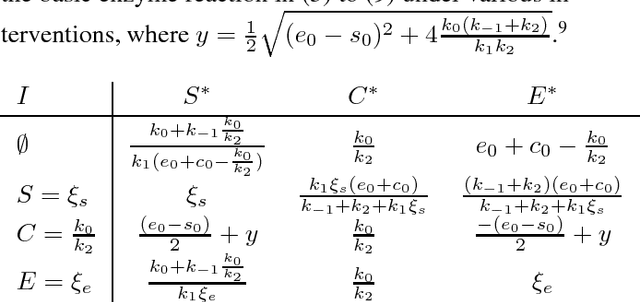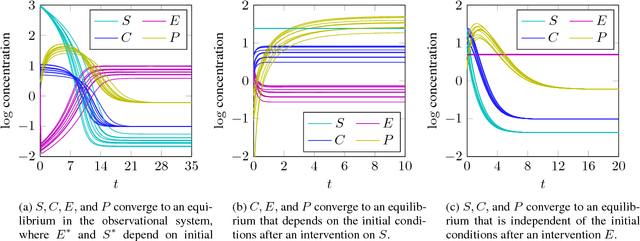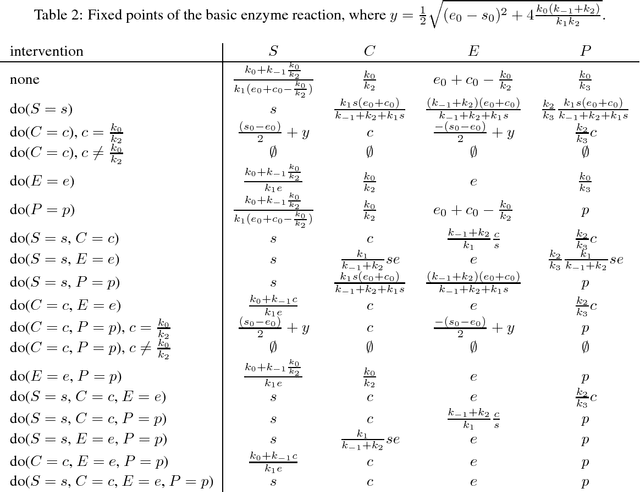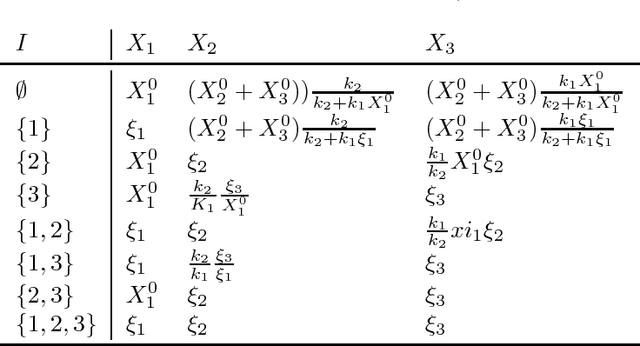Generalized Strucutral Causal Models
Paper and Code
May 16, 2018



Structural causal models are a popular tool to describe causal relations in systems in many fields such as economy, the social sciences, and biology. In this work, we show that these models are not flexible enough in general to give a complete causal representation of equilibrium states in dynamical systems that do not have a unique stable equilibrium independent of initial conditions. We prove that our proposed generalized structural causal models do capture the essential causal semantics that characterize these systems. We illustrate the power and flexibility of this extension on a dynamical system corresponding to a basic enzymatic reaction. We motivate our approach further by showing that it also efficiently describes the effects of interventions on functional laws such as the ideal gas law.
 Add to Chrome
Add to Chrome Add to Firefox
Add to Firefox Add to Edge
Add to Edge